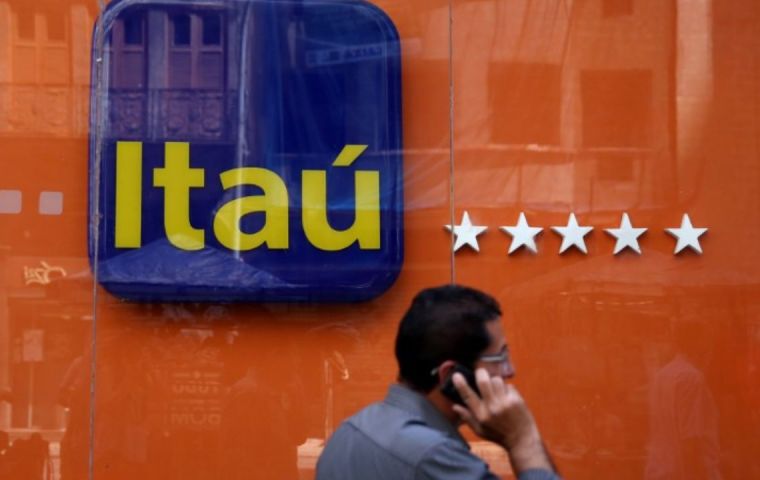MercoPress. South Atlantic News Agency
Leading Brazilian private bank admits difficulties with loan default
 Itau reported a recurring net income of 4.205 billion reais (US$785.82 million), down 40% from a year earlier, as it boosted loan-loss provisions
Itau reported a recurring net income of 4.205 billion reais (US$785.82 million), down 40% from a year earlier, as it boosted loan-loss provisions Itaú Unibanco Holding SA’s Chief Executive Candido Bracher said on Tuesday that next year he sees Brazil’s 90-day default ratio reaching higher levels than in a previous crisis.
“Brazil’s GDP is poised to drop by unseen levels, so it is natural that there will be higher loan delinquency rates,”, Bracher told journalists in a conference call. Itau’s 90-day delinquency ratio reached a peak of 5.6% in 2009 and 4.8% amid a recession in 2016.
Its second-quarter loan default was at 2.7%, but Bracher said he sees it going up next year, as grace periods extended to clients end.
Itau reported on Monday a recurring net income of 4.205 billion reais (US$ 785.82 million), down 40% from a year earlier, as it boosted loan-loss provisions for another quarter to account for the coronavirus crisis.
“We believe investors were expecting a bit more from Itau,” BTG Pactual’s analysts said in a note to clients.
Chief Financial Officer Milton Maluhy said net interest margin is likely to continue a downward trend, as Brazil’s interest rates are at record-low levels and Itau has decided to shift to corporate loans. It was at 8.4% in the second quarter, down from 9.2% in the previous quarter.
To weather the impact of the coronavirus crisis, the bank is seeking a nominal reduction in operating expenses this year and next, Maluhy added.
Among ongoing measures, the CFO said the bank is returning some rented buildings, as some working-from-home measures will be permanent. Maluhy also said the bank will further shrink its branch network, but did not disclose numbers.




Top Comments
Disclaimer & comment rulesCommenting for this story is now closed.
If you have a Facebook account, become a fan and comment on our Facebook Page!